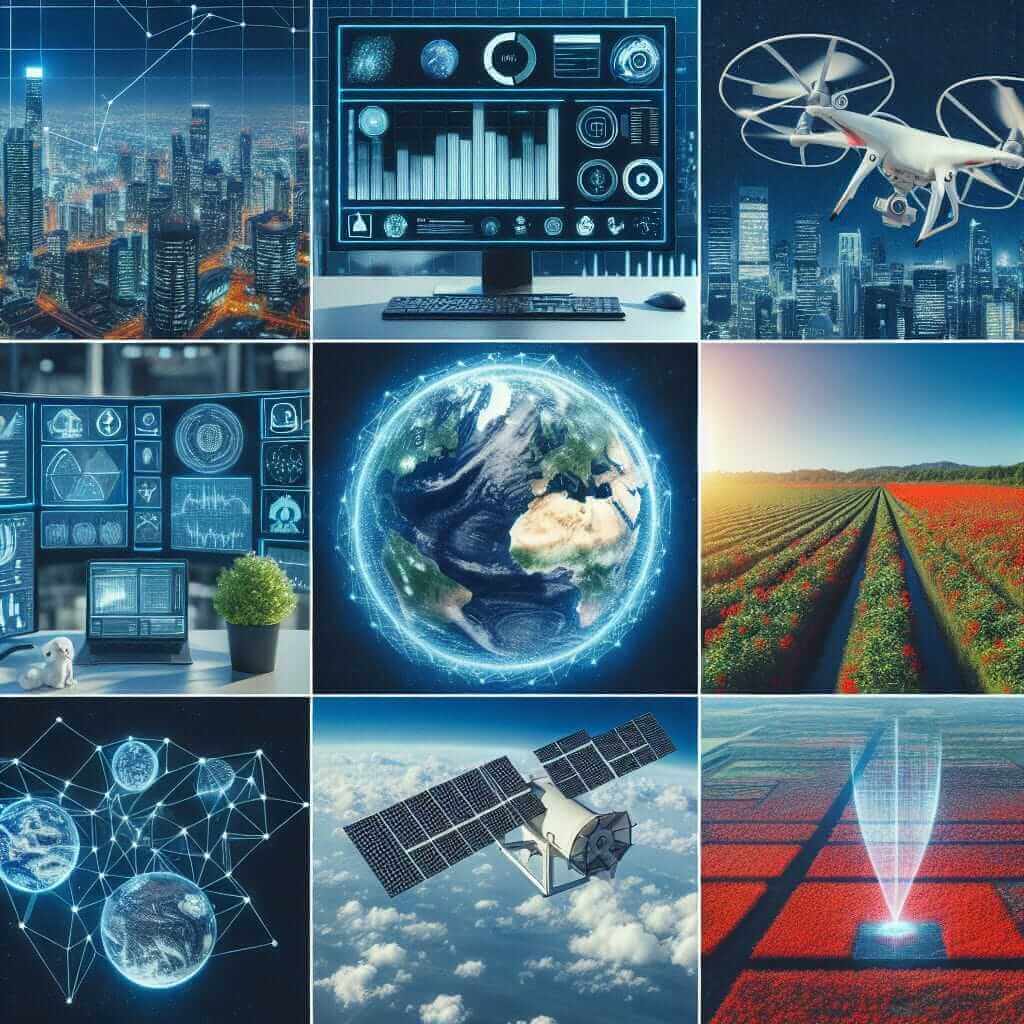The IELTS Reading section is a crucial component of the IELTS exam, requiring candidates to read passages on various topics and answer questions to test their comprehension. With increasing global attention on climate change, the topic “How is AI being used to enhance climate change mitigation efforts?” has grown in prevalence. Given its relevance and the growing body of literature around it, it’s highly plausible for this topic to appear in future IELTS exams.
In this article, we will create an IELTS Reading practice passage based on this topic, design corresponding questions, provide detailed answers, and discuss useful vocabulary and grammar points. This comprehensive approach will help candidates prepare effectively for the Reading section of the IELTS.
Practice Reading Passage
AI’s Role in Mitigating Climate Change
Artificial Intelligence (AI) is revolutionizing various sectors, including efforts directed towards climate change mitigation. AI technologies are being leveraged to optimize energy use, predict environmental changes, and develop sustainable solutions. With the planet’s future at stake, AI’s role in combating climate change is more critical than ever.
One prominent application of AI in climate change mitigation is in energy management. AI systems can predict energy usage patterns and optimize the operation of power grids, reducing energy waste. For instance, AI can forecast electricity demand more accurately than traditional methods, allowing for more efficient energy distribution. Moreover, AI-driven smart grids can adapt to fluctuations in energy supply and demand, ensuring a more balanced and sustainable energy consumption model.
In agriculture, AI is being used to enhance sustainability practices. Farms are employing AI-powered tools to monitor soil health, predict crop yields, and manage water resources efficiently. This not only boosts productivity but also reduces the environmental footprint of farming activities. AI-driven precision agriculture allows for the careful allocation of resources, minimizing waste and maximizing yield.
Climate modeling is another area where AI is making significant strides. Traditional climate models often struggle with the vast amount of data and complexity involved. However, AI can analyze enormous datasets swiftly, offering more accurate predictions of climate patterns and assisting in the development of effective mitigation strategies. These models can help policymakers understand potential future scenarios and plan accordingly.
AI also aids in monitoring deforestation and illegal logging activities. Satellite imagery combined with AI algorithms can detect changes in forest cover more efficiently than human assessments. This enables quicker responses to environmental threats and aids in the enforcement of conservation policies.
Despite its potentials, the use of AI in climate change mitigation is not without challenges. Issues related to data privacy, the energy consumption of AI systems themselves, and the need for significant investments in technology and education can hinder progress. However, with strategic investments and international collaboration, the integration of AI into climate change efforts holds promise for a sustainable future.

Questions
Multiple Choice
1. What is the primary benefit of AI in energy management?
- A) Reducing operational costs
- B) Predicting weather patterns
- C) Optimizing energy use and reducing waste
- D) Ensuring data privacy
2. How does AI contribute to sustainable agriculture?
- A) By increasing the use of synthetic fertilizers
- B) By predicting crop yields and managing water resources efficiently
- C) By creating genetically modified crops
- D) By promoting traditional farming techniques
True/False/Not Given
3. Traditional climate models are more efficient than AI-driven models.
4. AI can help in detecting illegal logging activities.
Matching Headings
5. Match each paragraph to the correct heading:
- Paragraph 1: AI’s Role in Energy Management
- Paragraph 2: AI in Agriculture
- Paragraph 3: AI and Climate Modeling
- Paragraph 4: Challenges and Potential of AI in Climate Change
Sentence Completion
6. AI-driven precision agriculture allows for __ and __.
Answer Key
Multiple Choice
- C) Optimizing energy use and reducing waste
- B) Predicting crop yields and managing water resources efficiently
True/False/Not Given
- False (The passage highlights the efficiency of AI over traditional models)
- True (The passage mentions AI aiding in monitoring deforestation and illegal logging)
Matching Headings
-
- Paragraph 1: AI’s Role in Energy Management
- Paragraph 2: AI in Agriculture
- Paragraph 3: AI and Climate Modeling
- Paragraph 4: Challenges and Potential of AI in Climate Change
Sentence Completion
- “careful allocation of resources; maximizing yield”
Common Errors to Avoid
- Misinterpreting the meaning of complex sentences.
- Overlooking specific details provided in the passage.
- Failing to paraphrase the content in answers, resulting in copying phrases directly from the text.
Vocabulary
- Mitigation (noun) /ˌmɪt.ɪˈɡeɪ.ʃən/: The action of reducing the severity or seriousness of something. Example: The mitigation of climate change is essential for the sustainability of our environment.
- Optimize (verb) /ˈɒp.tɪ.maɪz/: To make something as effective or efficient as possible. Example: AI systems can optimize energy usage to conserve resources.
- Predict (verb) /prɪˈdɪkt/: To say that an event or action will happen in the future. Example: Advanced AI algorithms can predict climate patterns with increased accuracy.
Grammar Focus
Complex Sentences
Definition: A complex sentence contains a main clause and one or more subordinate clauses.
Example from Passage: “With the planet’s future at stake, AI’s role in combating climate change is more critical than ever.”
Structure: Main Clause + Subordinate Clause
Usage: Complex sentences are useful for expressing detailed and nuanced information, which is essential in academic writing.
Tips for Scoring High in IELTS Reading
- Practice Regularly: Consistent practice with a variety of topics, especially current and relevant ones like AI and climate change.
- Time Management: Allocate time wisely for each passage to ensure you can attempt all questions.
- Skimming and Scanning: Quickly identify key ideas and specific details in the text.
- Understanding Question Types: Familiarize yourself with different question formats and strategies for each type.
- Building Vocabulary: Enhance your vocabulary, focusing on academic and topic-specific words.
By following these guidelines and utilizing the practice materials provided, candidates can enhance their performance and achieve a higher score in the IELTS Reading section.